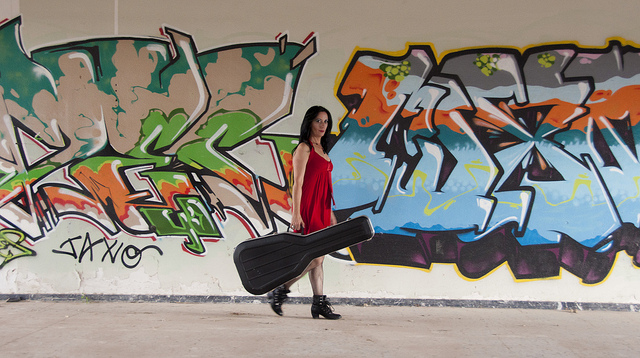
In the beginning, the Bible was a blank page, and the spirit of the Lord sat upon the settled waters, unfathomable silence searching for a voice. Every writer has been there before, an uncreated universe at your fingertips.
The blank page is a blue ocean where everything is a choice. Arguments are unworked, rhythms unfelt, metaphors swirl in the vast sky of mind. Out of this void, we craft our stories, choose our fonts, and sculpt our styles from the clay of human possibility.
Somehow, humanity imprints itself on the world in the stamp of its own style.
Everything human is shot through with style. There is a style to the way we speak, the way we dress, the places we live, the books we read. Each city has its own style, each social circle its own way of being. Far from some surface phenomenon pushed upon us by corporate advertisers, the style that matters is, in many ways, the expression of our very being.
But if we express our essence through style, and if the sum total of those expressions makes up the world in which we live, then the failure to see style in the world is a failure to see the essence of our shared humanity. To see the personality behind the city planning, to sense the care in the shop window sign is to humanize the world; to miss it is to live in a world of alienation.
Style emerges from the individual, flowing outward to make its mark on the social scene. The structure of thought shows up in the broken rhythms of speech; perceptions can be seen in the syntax of sentences. If writers are notorious for the struggle with which they seek to find their voice, perhaps it is less because of some peculiarity to which writers are prone and more a function of the infinite freedom of the blank page.
The give-and-take of conversation is different, more a cacophony out of which we might make jazz. Every instrument will have its solo, every voice speaking in its turn, as the syncopated meter edges to completion. The tussle of words and the interjection of arguments, the assertion of self and the falling back in submission, the cadence of voice and the chorus of laughter, fused in a raging, rapid tumbling to some yet-undefined sea.
Each of us swims in a sea of intersecting styles. The music in the café, the rhythm of the city street, the pace of the language, the spaciousness of the sidewalk, the “blooming buzzing confusion” of the great world itself, in the words of philosopher William James, crash in on us in waves, edging us to and fro, as we surf the frothing ocean of expression.
The world of objects is internalized subjectively in personality styles; individuals objectify their styles in the world of objects; style emerges where subject and object intersect; and that place is often the scene of epic struggles, the adolescent fighting to express her true self, the Greek Gods clashing over the meaning of their civilization.
Civilization is an argument across generations; culture is a dialectic struggle of voices seeking recognition. Every political debate is a fight over aesthetics, where shared visions clash and values become symbols of deeper human expressions.
If it is a question of how we define ourselves, a question of the ways we live together, a question of the scope of moral responsibility, personality style will tend to play a large part in defining our positions; presentation will help us choose our sides.
To say the culture wars are often animated by conflicting styles is not to deny the moral nature of political argument, but moral arguments tend to be suffused with an aesthetic dimension. And there is a reason behind the rationale: style is not only the outward expression of the inner spirit but also the spirit of the outside world.
˜
Author: Theo Horesh
Image: Flickr/Keith Ellwood
Editors: Travis May; Katarina Tavčar


 Share on bsky
Share on bsky




Read 0 comments and reply